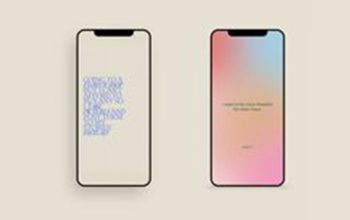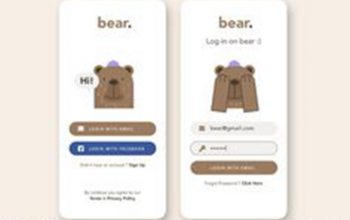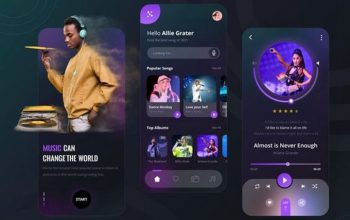App-centric companies have made billionaires of founders like Bumble’s Whitney Wolfe Herd and have enabled bodily product corporations like Simba Sleep and Peleton to construct engaged communities and create a gentle stream of potential new clients. Cell apps generally is a nice enterprise. Apps are among the many prime three most worthwhile startup varieties alongside e-commerce and Chrome extensions. Nonetheless, they will generally go unsuitable.
Table of Content
- app development
- buy android ratings
- android app keyword installs
- ios app reviews
There are some high-profile failures, like Quibi for instance. In 2018, a workforce of high-status tech and leisure business veterans armed with near £1.2bn in funding constructed a short-form video rival to Netflix, iPlayer, and Amazon Prime Video. For each Quibi, there are a lot of low-profile apps failing. Fortunately, there are methods to be extra proper than unsuitable when growing your app. Right here, I’ll define the 4 key errors app patrons proceed to make (typically by means of no fault of their very own) and present you how one can improve your probabilities of app success.
Who is aware of, you may strike gold like Manchester billionaire, Johnny Boufarhat, whose assembly app Hopin’s worth shortly achieved unicorn standing simply final yr.
Lack of product-market match
As our world turns into more and more mobile-centric, 1000’s of latest apps go stay day by day, pushed by the excessive market demand for brand new content material and performance. However that prime quantity means intense competitors, which makes it tougher for even “good” apps to make an affect. Some analysis reveals that roughly one in each two apps put in will get uninstalled inside 30 days, hitting your preliminary funding and ongoing spend. Usually this is because of poor product-market match. Take the 10-minute video app, Quibi, once more; it misplaced greater than 90% of its consumer base after their free trial ended, and media critics complained that “nobody at Quibi even understands what Quibi is.”
A product-market match is a state when your app is positioned in the fitting market and might fulfill the precise wants or resolve the ache factors of the end-users. Take Fortnight Studio’s consumer, Bumble. On this planet of relationship apps, pre-Bumble males usually made the primary transfer inflicting girls to really feel uncontrolled (and generally harassed), which Bumble solved by giving girls management by making certain solely they may make the primary transfer. This solved an enormous ache level for girls, but in addition males. By enabling girls to really feel snug on the platform, Bumble elevated the probabilities of relationship success for each events. How do you discover product-market match? My different suggestions ought to allow you to reply that query.
Launch with essentially the most full imaginative and prescient – an all-singing, all-dancing model
You’ve most likely heard that Mike Tyson quote: “Everybody has a plan till they get punched within the face.” Properly, the app model of that is getting knocked out by failing to be agile.
Many startups have a imaginative and prescient for the place the product will find yourself, and it’s often essentially the most fully-fledged model that has been efficiently working for years with thousands and thousands of customers. However beginning with an enormous and dear fully-realized product that embodies the unique imaginative and prescient may sound good, however might be lethal. It was for Quibi. Certain you’ll be able to argue that to compete towards Netflix and YouTube you want a completed, extremely polished model relatively than a minimal viable product (‘MVP’). Alternatively, you would argue that it’s a good way to lose £1.2bn if customers don’t prefer it. Many hopeful corporations proceed to repeat this error.
To achieve success, it’s higher to begin small and perceive the market response, then adapt primarily based on that response for the following step. Enthusiastic about Fortnight Studio’s consumer Simba Sleep, the net mattress firm (with nice product-market match), they wished to transcend their superb sleep merchandise to turn out to be their clients’ (and prospects’) personal private sleep coach. So we developed their sleep teaching app. Our insights, to make sure our app had the identical product-market match that the bodily merchandise had, revealed the sleep issues to resolve digitally. It was clear that the core performance of the app would should be monitoring sleep.
Working in fortnightly sprints after establishing the idea, we shortly moved into creating wireframes, consumer journeys, and app flows. Each stage was performed in two-week timeframes, enabling us to check element elements that may finally add as much as the full-blown imaginative and prescient and ensure it labored. We didn’t wish to work on one thing for months with out ever testing it, solely to seek out we’ve solved an issue nobody had and constructed one thing nobody truly wished. At each iteration step, we might resolve small issues quicker than with a full-blown app and be certain that the launch model would achieve success.
I’m not saying Quibi wasted £1.2bn on a hunch and inspiration, however they may have examined product-market match and iteratively solved a sequence of small issues by means of so many growth levels relatively than try to resolve one monster, unsolvable challenge that resulted in a fast, spectacular demise. So the lesson is to begin small and iterate incessantly.
Prioritising monetization forward of consumer worth
I do know you need your app to make the world a greater place or get you filthy wealthy. And I would like it to do this for you too. Don’t fear, I’m not suggesting you don’t earn a living. However when you begin from a spot of monetization, as a substitute of consumer worth, you most likely received’t have income.
I’d go so far as to say by no means construct merchandise with monetization in thoughts…at first. As an alternative, deal with constructing a product that folks love after which determine how one can monetize it.
I’m an enormous fan of freemium fashions, like Spotify, as they permit customers to expertise the product while making an improve to premium options permits you to maximize engagement. Whereas Quibi had a free trial, there was no free content material when the trial ended.
Spotify, then again, prioritizes consumer worth by providing you streaming music, discovery instruments, playlists, and extra without cost, with the added bonus of ad-free listening, listening to music offline, and so forth for premium subscribers.
Apparently, Netflix is accelerating plans to reverse its premium mannequin to an ad-supported possibility so as to shore up its shrinking consumer base. So even the most important of the large are open to these kinds of fashions.
So earlier than you concentrate on turning your customers into money cows, develop your herd first by optimizing for an excellent consumer expertise, excessive retention fee, and good engagement. Monetizing will probably be a lot simpler then.
Brief-term pondering
The tempo of change in apps is intense, however you must nonetheless begin with a long-term challenge in thoughts. Many tasks abort when the founders or preliminary stakeholders lose curiosity or get distracted by different tasks.
The relative ease of beginning an app challenge nowadays comes with an undesirable facet impact of constructing tasks straightforward to drop, stop upkeep, or simply cease advertising to develop the consumer base. Apple and different platforms don’t like this and even take away apps that haven’t been up to date inside the final three years and fail to satisfy a minimal obtain threshold.
Dedication, then again, will pay dividends. Enthusiastic about Fortnight Studios consumer Simba Sleep once more, it was a hit – because of good product market match and cautious iteration and testing earlier than growing the complete model of the app – in simply 6 weeks. It made it into the highest 20 within the well being & health class with a 4.8/5 rating and over 10,000 downloads. Job performed, proper? Mistaken.
Reasonably than say, “job performed” my workforce and I regularly enhance it. This helps to drive round 15,000 month-to-month downloads and keepw customers engaged as measured by month-to-month energetic periods. 46% monitor their sleep each evening utilizing the app, and its each day retention fee is a whopping 52%.
On condition that extra sleep software program continues to return onto the market, like with some other app class, you’ll be able to’t take a straight line from begin to success; you must take a long-term view and adapt so as to preserve profitable over an extended time frame.




